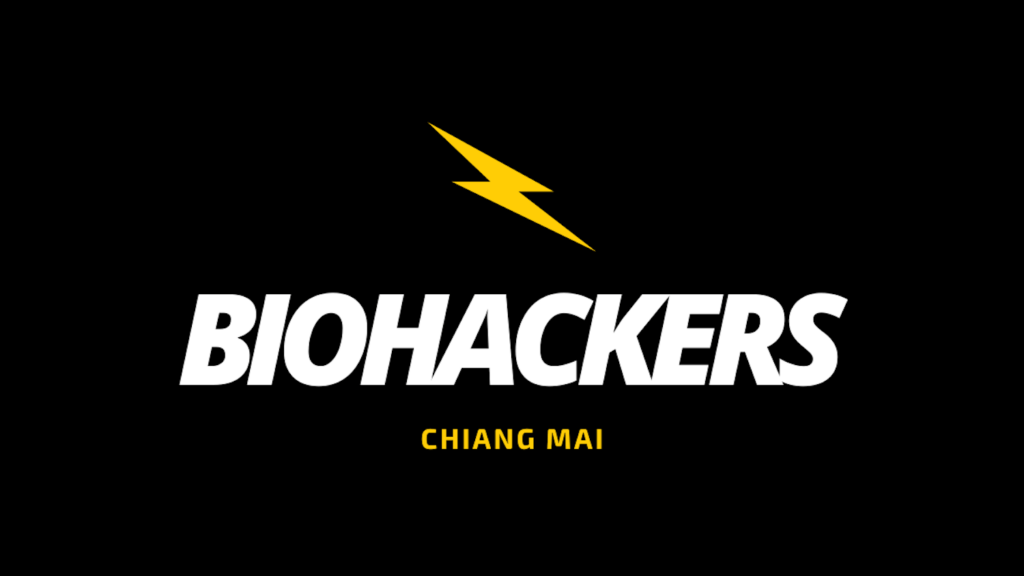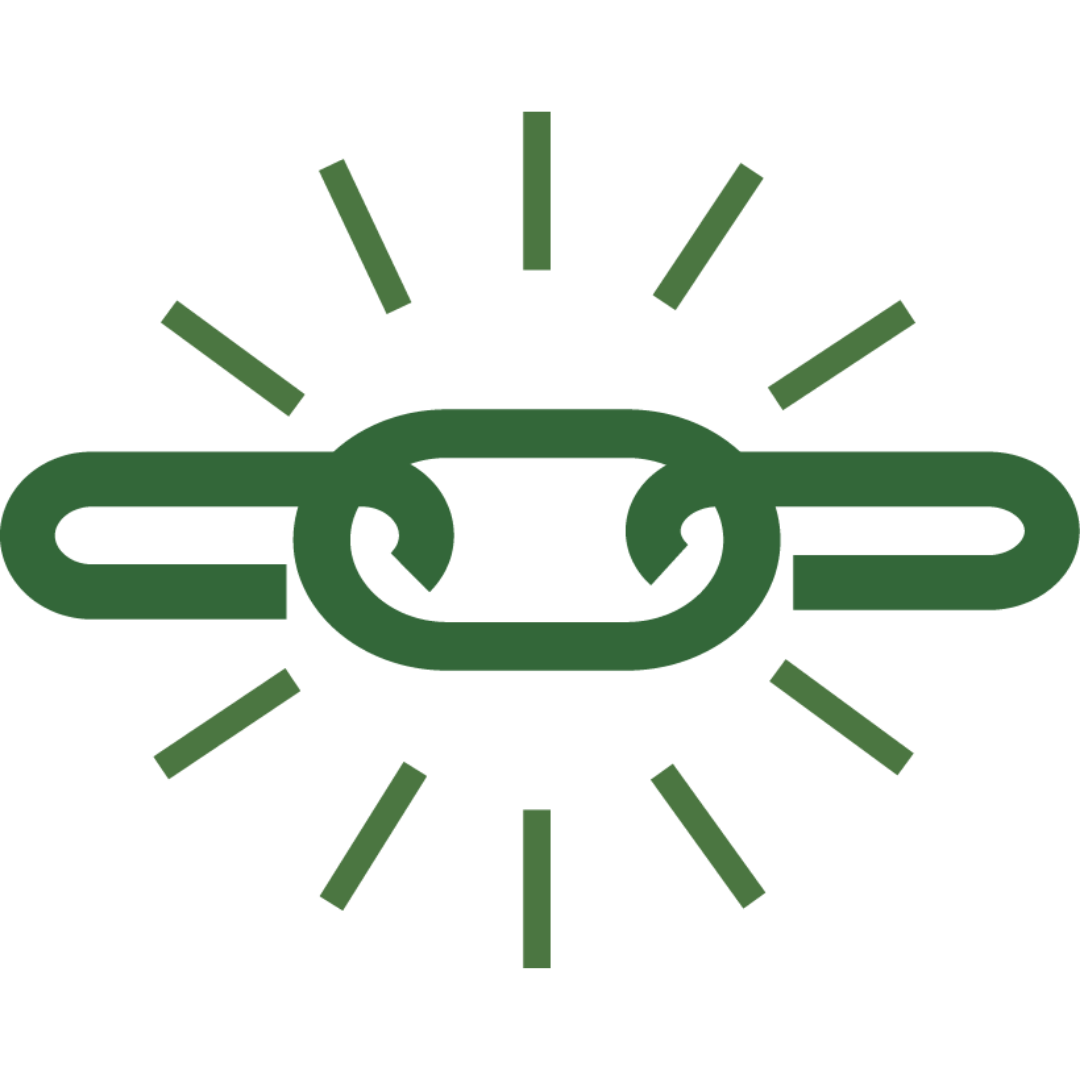Yesterday morning at Galae Restaurant, our 86th Biohacking Social brought together a fascinating mix of health enthusiasts, entrepreneurs, and wellness seekers. Over delicious food and great coffee, we dove deep into topics ranging from cutting-edge sleep technology to ancient meditation practices.
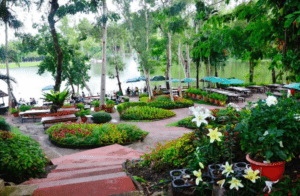
Here’s what we discovered…
Table of Contents
Toggle1. Optimizing Sleep Technology & Environment
The discussion kicked off with an exploration of innovative light therapy devices. As someone who’s experimented extensively with light exposure for sleep optimization, I was excited to share insights about two game-changing technologies:
Light Therapy Devices
- NeuroVizr: This fascinating device uses precise light stimulation to help regulate circadian rhythms and enhance sleep quality. Learn more about NeuroVizr

- FlexBeam: Red light therapy has been transformative for my own recovery and sleep. The FlexBeam offers targeted red light treatment for enhanced cellular function and better sleep. Explore FlexBeam benefits

Smart Sleep Accessories
One participant shared their experience with a Bluetooth-enabled sleep mask that revolutionized their bedtime routine. We discussed how combining light blocking with gentle audio can create an optimal sleep environment.
Key takeaways included:
- Light Management: Using blackout curtains or sleep masks
- Sound Environment: White noise or meditation apps
- Temperature Control: Keeping the bedroom cool (around 65°F/18°C)
I’ve found that optimizing your sleep environment is one of the most impactful ways to improve sleep quality.
In fact, we’ll be diving much deeper into these topics at our upcoming Sleep Masterclass this Wednesday at Alt_PingRiver. Reserve your spot
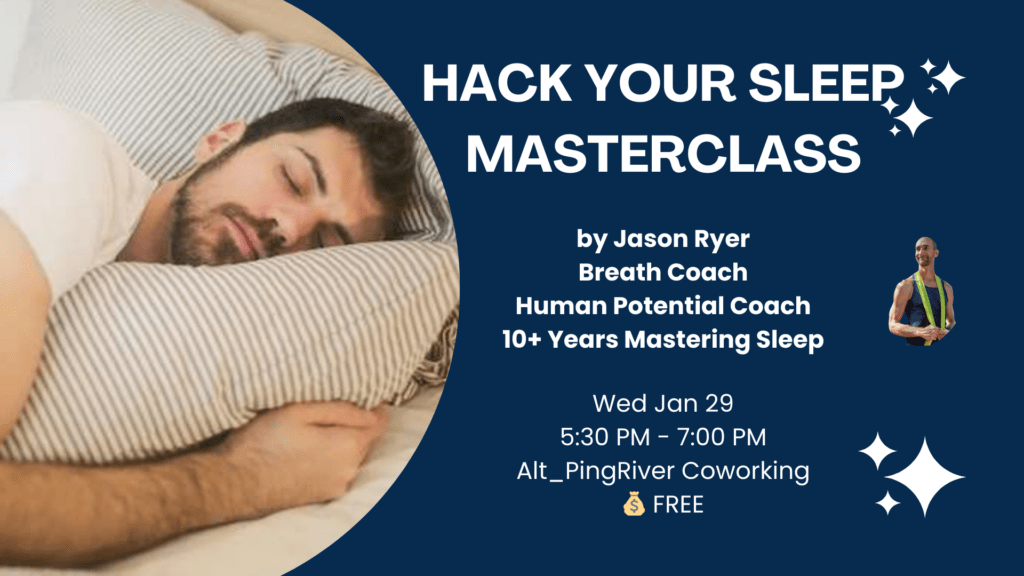
2. Sleep Enhancement Strategies
Our conversation flowed naturally into exploring both traditional and cutting-edge approaches to improving sleep quality. One fascinating topic that emerged was polyphasic sleep – the practice of breaking sleep into multiple segments throughout the day. While this approach isn’t for everyone, it sparked an engaging discussion about optimizing our natural sleep cycles.
Natural Sleep Supplements
Several participants shared their experiences with natural sleep aids:
- Valerian Root: This herb has been used for centuries to improve sleep quality. Research suggests it may help reduce the time it takes to fall asleep and improve sleep quality. Learn more about Valerian root
- CBD: Many reported positive experiences using CBD for sleep, particularly for reducing anxiety that often interferes with falling asleep. Read the science behind CBD and sleep
Pre-Sleep Routines
The group shared various effective bedtime rituals. I personally emphasized the importance of having a consistent pre-sleep routine:
- Digital Sunset: Turn off phones and screens 1-2 hours before bed
- Use blue light blocking apps and glasses if you must use devices
- Switch to reading physical books or journaling
- Evening Movement:
- Gentle yoga or stretching
- Avoid intense exercise close to bedtime
- Mindful Practices:
- Journaling for mental clarity
- Gratitude reflection
- Simple breathing exercises
What surprised many participants was learning how cold exposure can dramatically improve sleep quality. This is something we explore extensively in our ice bath workshops, where participants often report having their best sleep in weeks following their first session.
- Try my Ice Bath Experience for better sleep (cold exposure 3+ hours before bed can significantly improve sleep quality)
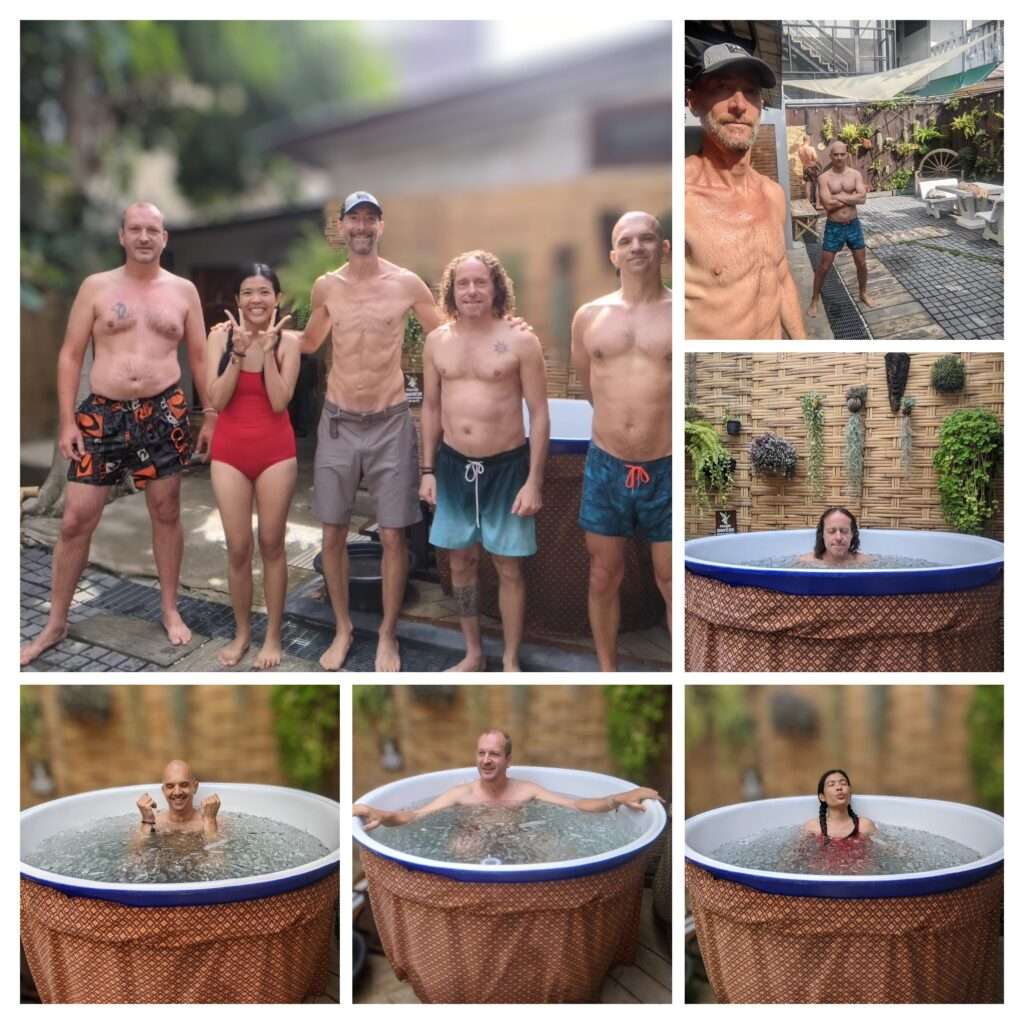
3. Mind-Body Practices
The discussion then shifted to various techniques for developing stronger mind-body connections, which many participants noted as crucial for both sleep quality and overall wellbeing.
Breathwork Explorations
Breathwork emerged as a powerful tool that many use for relaxation and mental clarity. I shared my experience of how proper breathing techniques have transformed not just my sleep, but my entire approach to stress management.
Key practices discussed included:
- Box Breathing: A simple but effective technique used by Navy SEALs where you breathe in a 4-4-4-4 pattern. Learn box breathing basics
- 4-7-8 Breathing: This calming pattern has been shown to activate the parasympathetic nervous system, perfect for pre-sleep relaxation. Discover the 4-7-8 method
Meditation Approaches
We explored various meditation styles, with particular interest in the local Pa Pae meditation Retreat.
One participant shared their transformative experience with lucid dreaming through meditation, which led to a fascinating discussion about consciousness and sleep states.
The group was particularly interested in how modern technology can enhance traditional meditation practices. For instance:
- Using biofeedback devices to track meditation depth
- Apps that guide meditation sessions
- EEG devices that provide real-time brain activity feedback
Journaling and Reflection
Many participants emphasized the power of regular journaling.
This might include:
- Morning Pages: Three pages of stream-of-consciousness writing first thing in the morning
- Evening Reflection: Reviewing the day’s events and lessons
- Gratitude Practice: Listing three specific things I’m grateful for
Pro Tip: I’ve found that combining breathwork with journaling – taking deep breaths between writing sessions – helps deepen the practice and enhance mental clarity.
These mind-body practices form a crucial foundation for better sleep and overall wellness, topics we’ll explore further in our upcoming Sleep Masterclass.
The real magic happens when you integrate these practices with proper sleep hygiene and cold exposure therapy, which we teach in our Ice Bath Experience.
4. Performance & Productivity
The conversation then evolved into how sleep and wellness practices directly impact our daily performance and productivity.
One participant shared insights from “The 7 Habits of Highly Effective People,” which sparked an engaging discussion about how ancient wisdom and modern technology can work together to enhance our effectiveness.
Technology & Performance Enhancement
The intersection of AI and biotech emerged as a fascinating topic. We discussed how new technologies are revolutionizing personal performance tracking and optimization.
For example:
Recent developments in AI are helping create personalized sleep recommendations based on individual biodata. Companies like Oura Ring are using machine learning to provide deeper insights into our sleep patterns and recovery needs.
This technology continues to evolve, with some participants sharing how they use AI-powered apps to track their productivity cycles and optimize their work schedules around their natural energy peaks.
Personal note: In my own journey, I’ve found that while technology can provide valuable insights, it’s crucial to maintain a balance. Sometimes the best productivity hack is simply turning off all devices and focusing on deep work.
Work-Life Integration
Rather than traditional work-life balance, our discussion centered on work-life integration – a more holistic approach that acknowledges how all aspects of our lives interconnect.
Key insights included:
- The importance of regular reflection periods throughout the day
- Using natural ultradian rhythms (90-minute focus sessions followed by breaks)
- Integrating movement into work periods
- Strategic use of supplements and nootropics for cognitive enhancement
Pro Tip: I’ve discovered that incorporating cold exposure through ice baths can significantly boost mental clarity and focus for hours afterward.
This is something we explore in depth during our Ice Bath Experience.
The Role of Sleep in Performance
The group unanimously agreed that quality sleep forms the foundation of peak performance. This understanding has become increasingly important as we learn more about how sleep affects everything from creativity to decision-making ability.
We’ll be diving deep into these connections at our upcoming Sleep Masterclass, where we’ll explore practical strategies for optimizing sleep to enhance daily performance.
5. Nutrition & Lifestyle
The final part of our discussion centered on how nutrition and lifestyle choices impact our sleep and overall wellbeing. This topic proved especially relevant as we shared our morning meal together at Galae Restaurant.
Intermittent Fasting Insights
Several participants shared their experiences with intermittent fasting, leading to an enlightening discussion about timing our meals for optimal sleep and energy.
I shared my own journey with fasting, explaining how I’ve found that finishing dinner at least 3 hours before bedtime significantly improves sleep quality.
Research has shown that aligning our eating windows with our circadian rhythms can enhance both sleep quality and metabolic health.
Studies from the Satchin Panda Lab at the Salk Institute demonstrate how time-restricted eating can improve sleep patterns and overall health markers. Learn more about circadian rhythm fasting
Dietary Approaches for Better Sleep
The conversation turned to various dietary philosophies, with particular interest in the flexitarian approach – a predominantly plant-based diet with occasional inclusion of animal products.
We discussed how this flexible approach might help certain people in certain situations – noting that high fiber diets can be problematic for people with a disrupted microbiome (which unfortunately is most people!).
Participants shared strategies for maintaining balanced nutrition while keeping meals light in the evening. We explored how certain foods contain natural compounds that can either promote or inhibit quality sleep.
Personal note: Through years of experimentation, I’ve found that a meat-forward diet, combined with strategic fasting windows and proper hydration, creates an optimal foundation for restorative sleep.
We’ll explore these nutrition principles further in our upcoming Sleep Masterclass.
Exercise Integration
The group shared various perspectives on exercise timing and its impact on sleep. We discussed how different types of movement affect our sleep architecture:
- Morning exercise for circadian rhythm entrainment
- The benefits of afternoon strength training
- Gentle evening movement for better sleep
- Cold exposure through ice baths for enhanced recovery and sleep quality
For those interested in experiencing how controlled cold exposure can improve both exercise recovery and sleep quality, I invite you to join us at our Ice Bath Experience.
Conclusion
Our 86th Biohacking Social proved once again that the intersection of ancient wisdom and modern science offers powerful insights for optimizing our health and performance. From cutting-edge light therapy devices to time-tested breathing techniques, each participant contributed valuable perspectives to our collective understanding.
If you’re intrigued by these topics and want to dive deeper, I encourage you to join us at our upcoming Sleep Masterclass this Wednesday at Alt_PingRiver.
We’ll be exploring many of these concepts in greater detail, providing practical strategies you can implement immediately for better sleep and enhanced performance.
Additionally, experience firsthand how cold exposure can transform your sleep and recovery by joining our Ice Bath Experience.
The combination of breathwork and controlled cold exposure offers a powerful pathway to improved sleep and overall wellbeing.
Join our growing community of health optimizers and biohackers in Chiang Mai as we continue to explore and implement the best practices for enhanced living.
See you at our next gathering!
[> Click here to see upcoming events – and join us! <]
